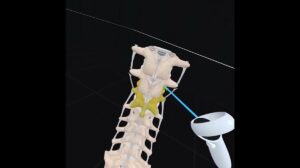NEW YORK (Reuters Health) – For patients with idiopathic sudden sensorineural hearing loss, intratympanic injection of corticosteroids is no better or worse than oral corticosteroid therapy, but is a valid alternative when oral treatment is contraindicated. That’s according to the results of a comparison trial reported in the Journal of the American Medical Association for May 25.
The authors explain that while the standard treatment for idiopathic hearing loss is a tapering course of oral corticosteroids, direct injection of corticosteroids into the middle ear has gained popularity based on the theoretical advantage of greater drug concentration at the target site and less systemic exposure.
To compare the two approaches, Dr. Steven D. Rauch, with Harvard Medical School and the Massachusetts Eye and Ear Infirmary in Boston, and colleagues randomly assigned 250 patients with acute unilateral sensorineural hearing loss to 60 mg/d of oral prednisone for 14 days with a 5-day taper or to four injections over 14 days of 1-mL doses of 40 mg/mL of methylprednisolone injected into the middle ear.
Two months after treatment, pure tone average hearing thresholds were similar in both groups — specifically, 56.0 db in the oral steroid treatment group and 57.6 dB in the intratympanic treatment group, the researchers report.
Adverse events were reported by 87.6% of participants in the oral group and 89.9% of those in the intratympanic group, although the type of adverse effect differed. That is, the oral treatment group experienced mood, sleep, or appetite changes and had elevated blood glucose levels typical of systemic steroid use, while the intratympanic group experienced transient pain at the injection site and brief caloric vertigo.
While noting that intratympanic treatment was not inferior to oral prednisone treatment in terms of efficacy, Dr. Rauch and colleagues conclude, “The comfort, cost, and convenience of oral prednisone are better than intratympanic treatment.” Still, they add, “Intratympanic treatment is a suitable alternative if there are medical contraindications to oral prednisone.”
The author of an accompanying editorial agrees. “The use of intratympanic steroids is moderately uncomfortable, inconvenient, and more costly than oral steroids and is associated with several relatively minor adverse effects,” writes Dr. Jay F. Piccirillo, of the Washington University School of Medicine in St. Louis. “Nevertheless, for patients with sudden hearing loss who are thought to be at too high a risk for systemic steroid usage, this study suggests a reasonable alternative.”
JAMA 2011;305: 2071-2079,2114-2115.




